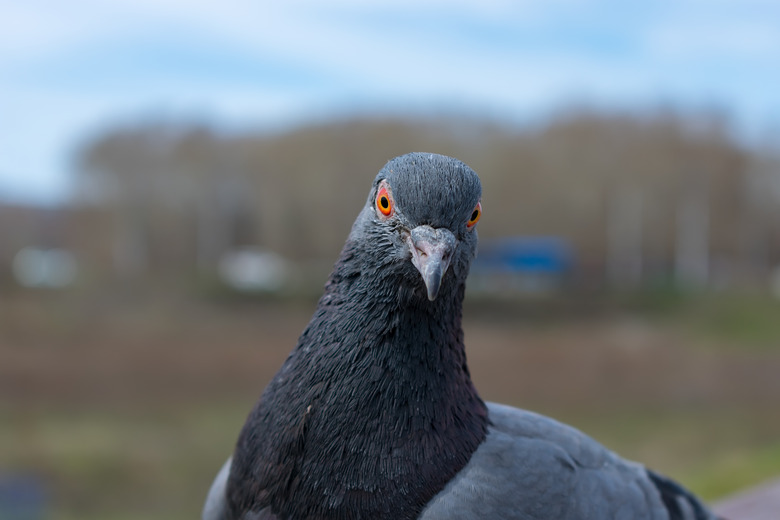What Do Pigeons Like To Eat?
Across the world in major cities, pigeons are a common bird. Many people consider pigeons nuisance birds, along with scavengers like crows and magpies — others find them charming companions in urban areas where they've adapted well. Pigeons will eat city debris such as bread crumbs and popcorn, but birdseed grain formulated for doves is healthier.
The cooing that pigeons perform is similar to the cooing of doves. People tend to think of pigeons as dirty pests and doves as clean symbols of peace, but they are really from the same family. The reputation that pigeons have received as pests who will eat anything is mostly undeserved. On the 'pigeon favorite food' list is unpopped corn and seeds.
Urban pigeon history
Urban pigeon history
The common name for the pigeon people are most likely to see is rock pigeon. The scientific name for the pigeon is Columba livia, from the family Columbidae which includes more than 300 species. They originated in Europe, Africa, Asia, and the Middle East.
Pigeons first arrived in North America in Nova Scotia, Canada in the 1600s with Europeans. Some of them were domesticated and trained as racing and homing pigeons. Today, city pigeons are considered feral because they are descended from escaped domestic pigeons.
Pigeons in the park
Pigeons in the park
Domestic and wild pigeons like to eat grains and seeds. Wild, or feral, pigeons will also eat bread crumbs, popcorn, and other food left behind by people. If they had to choose between bread and birdseed, a feral pigeon would choose the birdseed, which normally contains a variety of seeds and grains.
Although it's tempting to feed urban pigeons in the park, bread and crusts is not a good food source — even feeding feral pigeon commercial dove seeds causes long-term problems with population control. It's best to avoid intentionally feeding feral pigeons.
Domestic pigeon favorite food
Domestic pigeon favorite food
Domestic pigeons don't have access to lunch leftovers in the park, so their diet consists of their favorite food: grains, including corn, peas, wheat, and sorghum. The grains are not cooked or popped — they are fed to the pigeons raw. Many farm feed stores and pet stores sell bags of dove and pigeon seeds formulated to provide these pet and livestock birds adequate nutrition.
However, not all bags of seed are created equal. Seeds alone should not make up a pigeon's diet. Commercial pigeon feed should also contain grains, preferably enriched with brewer's yeast and vitamins. Adding finely chopped healthy green vegetables (not lettuce) and fruit occasionally to a pigeon's diet is necessary to keep them healthy. Note that avocado is toxic and should never be given to pigeons.
Pigeon eating habits
Pigeon eating habits
Pigeons swallow food whole, store it at the base of the throat, and then pass it into the digestive system. Like most birds, pigeons need grit (small pebbles or rocks) to process their food, so it can be broken down into nutrients. Feral pigeons can easily find grit, but owners of domestic pigeons need to supply it.
Drinking water aids digestion and is also important for pigeons to bathe in — debunking the myth that pigeons are dirty. Domestic pigeons need clean water daily, and in some regions, bottled water is preferable. Clean pigeon water bowls frequently.
Feral city pigeons
Feral city pigeons
The reputation that pigeons have as birds that carry disease is incorrect. It is the droppings that pigeons leave behind that may carry disease, not the pigeons. Those that live in cities keep themselves clean by frequently taking baths.
Feral pigeons are known to eat vast amounts of human food like bread crumbs, discarded French fries, and other leftovers. This leads people to believe that the bird is a scavenger and a nuisance, when all they are doing is cleaning up after people and surviving in their adapted home.
